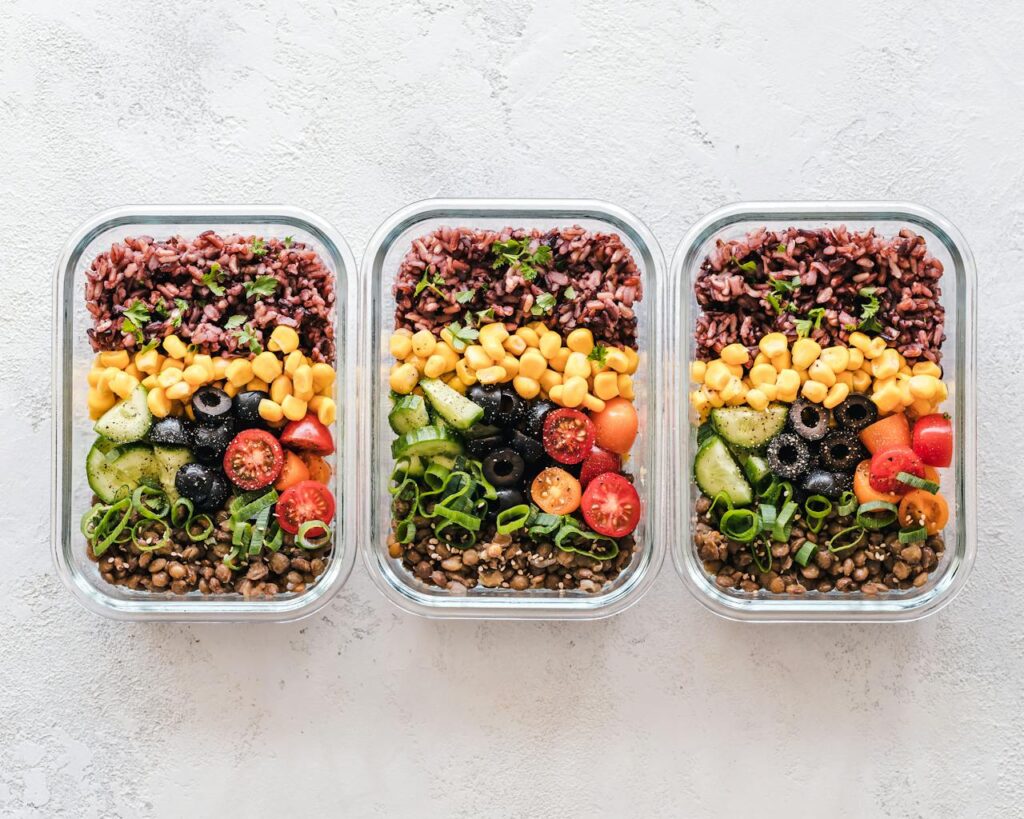The relationship between what we eat and how our skin looks has fascinated both scientists and beauty enthusiasts for decades. As popular diet trends continue to emerge, many people wonder: can changing your eating habits actually improve your complexion? Recent research in nutritional dermatology suggests the answer is a resounding yes – but with important caveats.
This comprehensive guide examines the latest evidence on how popular diets affect skin health, exploring both the benefits and potential drawbacks of trending nutritional approaches. From the ketogenic diet to intermittent fasting, we’ll uncover which dietary strategies truly support healthy, glowing skin.
The Science Behind Diet and Skin Health
Understanding the Nutrition-Skin Connection
Your skin is your body’s largest organ, and like all organs, it requires proper nutrition to function optimally. The foods you consume directly impact skin cell regeneration, collagen production, inflammation levels, and overall skin barrier function.
Key nutrients that influence skin health include:
- Omega-3 fatty acids: Reduce inflammation and support skin barrier function
- Antioxidants (vitamins C and E): Protect against free radical damage and UV exposure
- Vitamin A: Essential for cell turnover and preventing acne
- Zinc: Supports wound healing and reduces inflammatory acne
- Biotin and B vitamins: Crucial for healthy skin cell metabolism
- Collagen-supporting nutrients: Vitamin C, proline, and glycine
The Inflammatory Response
Many skin conditions, including acne, eczema, and psoriasis, have inflammatory components. Certain foods can either trigger or reduce inflammation throughout the body, directly affecting skin appearance and health.
Popular Diets and Their Impact on Skin Health
The Ketogenic Diet: High Fat, Low Carb Approach
What Is the Keto Diet?
The ketogenic diet drastically reduces carbohydrate intake (typically under 50 grams daily) while increasing fat consumption to 70-80% of total calories. This metabolic shift forces the body into ketosis, where it burns fat for fuel instead of glucose.
Impact on Skin Health
Potential Benefits:
- Reduced inflammation: Lower carb intake may decrease inflammatory markers
- Improved insulin sensitivity: Better blood sugar control can reduce acne-triggering hormones
- Increased omega-3 intake: Many keto-friendly foods are rich in anti-inflammatory fats
Potential Drawbacks:
- Initial skin dryness: The diuretic effect of ketosis can lead to dehydration
- Nutrient deficiencies: Restricted food groups may limit skin-supporting vitamins
- “Keto rash”: Some individuals experience a temporary inflammatory skin condition
Expert Recommendation: If following keto for skin benefits, ensure adequate hydration and include nutrient-dense, low-carb vegetables to prevent deficiencies.
The Mediterranean Diet: Heart-Healthy and Skin-Friendly
What Is the Mediterranean Diet?
Based on traditional eating patterns from Mediterranean countries, this diet emphasizes olive oil, fish, vegetables, fruits, whole grains, legumes, and moderate wine consumption.
Impact on Skin Health
Proven Benefits:
- Anti-inflammatory effects: Rich in omega-3s and antioxidants
- Enhanced skin elasticity: High vitamin E content supports collagen production
- UV protection: Antioxidants provide natural sun protection
- Improved hydration: Healthy fats support skin barrier function
Research Evidence: Multiple studies show Mediterranean diet followers have lower rates of skin aging and inflammatory skin conditions.
Implementation Tips:
- Include fatty fish 2-3 times weekly
- Use extra virgin olive oil as primary cooking fat
- Consume colorful vegetables and fruits daily
- Add nuts and seeds for additional healthy fats
Plant-Based and Vegan Diets: Antioxidant Powerhouses
What Are Plant-Based Diets?
These diets emphasize or exclusively include plant foods while minimizing or eliminating animal products.
Impact on Skin Health
Potential Benefits:
- High antioxidant intake: Fruits and vegetables provide skin-protective compounds
- Improved skin texture: Fiber supports gut health, which affects skin appearance
- Reduced dairy intake: May help those with dairy-sensitive acne
- Lower glycemic load: Whole plant foods typically have lower glycemic impact
Potential Challenges:
- Vitamin B12 deficiency: Can affect skin health and healing
- Iron deficiency: May lead to pale, tired-looking skin
- Protein adequacy: Insufficient protein can impair skin repair
- Omega-3 balance: Plant sources may not provide optimal ratios
Success Strategies: Supplement with B12, include diverse protein sources, and consider algae-based omega-3 supplements.
Intermittent Fasting: Timing Your Nutrition
What Is Intermittent Fasting?
This eating pattern cycles between periods of eating and fasting, with popular methods including 16:8 (16 hours fasting, 8 hours eating) and 5:2 (normal eating 5 days, restricted calories 2 days).
Impact on Skin Health
Potential Benefits:
- Enhanced autophagy: Cellular cleanup processes may improve skin quality
- Reduced inflammation: Fasting periods can lower inflammatory markers
- Improved insulin sensitivity: Better blood sugar control supports skin health
- Growth hormone optimization: May support skin repair and regeneration
Considerations:
- Hydration challenges: Fasting periods require careful attention to fluid intake
- Nutrient timing: Compressed eating windows must include adequate nutrition
- Stress response: Some individuals may experience stress-related skin issues
The Paleo Diet: Ancestral Eating Approach
What Is the Paleo Diet?
This diet includes foods presumed available to Paleolithic humans: meat, fish, vegetables, fruits, nuts, and seeds, while excluding grains, legumes, dairy, and processed foods.
Impact on Skin Health
Potential Benefits:
- Eliminated processed foods: Reduces inflammatory additives and preservatives
- Higher protein intake: Supports collagen production and skin repair
- Nutrient density: Emphasis on whole foods provides essential vitamins and minerals
- Reduced dairy: May help dairy-sensitive individuals
Potential Drawbacks:
- Fiber reduction: Lower intake from eliminated grains and legumes
- Cost and sustainability: Can be expensive and environmentally challenging
- Social limitations: Restrictive nature may affect social eating
Specific Skin Conditions and Dietary Interventions
Acne and Diet
High-Glycemic Foods: Research consistently shows that high-glycemic foods (white bread, sugary snacks, processed cereals) can worsen acne by increasing insulin and IGF-1 levels.
Dairy Products: Some studies suggest dairy, particularly skim milk, may exacerbate acne in susceptible individuals due to hormonal components.
Recommended Approach:
- Choose low-glycemic carbohydrates
- Limit dairy if acne-prone
- Include zinc-rich foods (pumpkin seeds, oysters)
- Consume omega-3 rich fish regularly
Eczema and Inflammation
Anti-Inflammatory Foods: Mediterranean-style eating patterns show promise for reducing eczema symptoms.
Gut Health Connection: Probiotics and prebiotic foods may help manage eczema through the gut-skin axis.
Elimination Considerations: Some individuals benefit from identifying and avoiding personal trigger foods.
Psoriasis and Autoimmune Support
Weight Management: Maintaining healthy weight can reduce psoriasis severity.
Anti-Inflammatory Protocols: Diets rich in omega-3s and antioxidants may help manage symptoms.
Alcohol Limitation: Reducing alcohol intake often improves psoriasis outcomes.
The Gut-Skin Axis: An Emerging Frontier
Recent research highlights the crucial connection between gut health and skin appearance. The gut microbiome influences:
- Systemic inflammation levels
- Nutrient absorption
- Immune system function
- Hormone production
Supporting Gut Health for Better Skin:
- Include fermented foods (kefir, sauerkraut, kimchi)
- Consume prebiotic fibers (garlic, onions, asparagus)
- Limit antibiotic use when possible
- Manage stress levels
- Consider probiotic supplementation
Practical Implementation Strategies
Creating Your Skin-Healthy Diet Plan
- Start with anti-inflammatory foundations: Base meals around vegetables, healthy fats, and quality proteins
- Identify personal triggers: Keep a food and skin diary to track correlations
- Prioritize hydration: Aim for adequate water intake throughout the day
- Include skin-supporting nutrients: Focus on foods rich in vitamins A, C, E, and zinc
- Consider timing: Some people benefit from intermittent fasting approaches
Supplements vs. Whole Foods
While whole foods should be the primary source of nutrients, certain supplements may support skin health:
- Omega-3 fatty acids: Especially for those not eating fish regularly
- Vitamin D: Important for immune function and skin health
- Probiotics: May support gut-skin axis health
- Collagen peptides: Some evidence for skin elasticity benefits
Monitoring Progress
Track skin improvements through:
- Weekly photos in consistent lighting
- Skin hydration and texture assessments
- Energy levels and overall well-being
- Professional dermatological evaluations
Common Mistakes to Avoid
Overly Restrictive Approaches
Extreme dietary restrictions can lead to:
- Nutrient deficiencies affecting skin health
- Increased stress levels (which worsen skin conditions)
- Unsustainable long-term practices
- Social isolation and eating disorder risks
Expecting Immediate Results
Skin cell turnover takes 28-40 days, meaning dietary changes require patience. Most people see initial improvements within 6-12 weeks of consistent dietary changes.
Ignoring Individual Variation
What works for one person may not work for another. Factors affecting individual responses include:
- Genetic predisposition
- Existing health conditions
- Stress levels and sleep quality
- Environmental factors
- Current skincare routine
The Future of Nutritional Dermatology
Emerging research areas include:
- Personalized nutrition: Using genetic testing to optimize individual dietary approaches
- Microbiome analysis: Tailoring diets based on gut bacteria profiles
- Nutrigenomics: Understanding how genes interact with nutrients to affect skin health
- Chronobiology: Optimizing meal timing for skin repair and regeneration
Conclusion: A Balanced Approach to Diet and Skin Health
The evidence clearly shows that diet significantly impacts skin health, but there’s no one-size-fits-all solution. The most effective approach combines:
- Anti-inflammatory eating patterns (like the Mediterranean diet)
- Adequate hydration and essential nutrients
- Individual customization based on personal responses
- Professional guidance from dermatologists and nutritionists
- Patience and consistency in implementation
Rather than chasing the latest diet trend, focus on sustainable, nutrient-dense eating patterns that support overall health. Your skin will reflect the care you give your entire body through thoughtful nutrition choices.
Remember that diet is just one component of healthy skin. Combine good nutrition with proper skincare, sun protection, adequate sleep, stress management, and regular exercise for optimal results.
Frequently Asked Questions
Q: How long does it take to see skin improvements from dietary changes?
A: Most people notice initial improvements within 6-12 weeks, as skin cell turnover takes 28-40 days. Significant changes may take 3-6 months of consistent dietary modifications.
Q: Can diet alone cure acne or other skin conditions?
A: While diet can significantly impact skin health, severe conditions typically require comprehensive treatment including proper skincare, and sometimes medical intervention. Diet should complement, not replace, appropriate dermatological care.
Q: Are expensive superfoods necessary for healthy skin?
A: No. Basic whole foods like vegetables, fruits, fish, nuts, and seeds provide all the nutrients needed for healthy skin. Focus on variety and consistency rather than expensive specialty items.
Q: Should I eliminate dairy completely for better skin?
A: Not necessarily. Only some people are sensitive to dairy’s effects on skin. Try eliminating dairy for 4-6 weeks to see if your skin improves, then gradually reintroduce to identify your tolerance level.
Q: Can supplements replace a healthy diet for skin benefits?
A: Supplements can support but not replace a balanced diet. Whole foods provide nutrients in optimal ratios with beneficial compounds that supplements can’t replicate. Use supplements to fill specific gaps, not as primary nutrition sources.
Ready to transform your skin through nutrition? Start by incorporating one anti-inflammatory meal daily and tracking your skin’s response. Small, consistent changes often yield the most sustainable and dramatic results.



